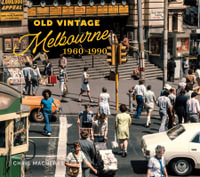From the adolescent thrill of getting a driver's license to the dreaded commutes of adulthood, from vintage muscle cars to electric vehicles, this groundbreaking book reveals the outsized impact the car has had—and will continue to have—on the lives of women.
Since their inception cars have defined American culture, but until quite recently car histories were largely written by and about men—with little attention given to the fascinating story of women and cars.
In this engaging non-fiction narrative, Nancy A. Nichols, the daughter of a used car salesman, uses the cars her father sold and the ones her family drove to tell a larger story about how the car helped to define modern womanhood. From her sister’s classic Mustang to her mother’s Chevy Convertible to her own Honda minivan, Nichols tells a personal story in order to shed light on a universal one.
Cars helped women secure the right to vote, changed the nature of romance, and influenced both fashion and child rearing customs. In the just over 100 years since their inception, cars have created possibilities for commerce and romance even as they exposed women to new kinds of danger.
Women Behind the Wheel explores the uniquely gendered landscape of the automobile, detailing the many reasons why cars are both more expensive and more dangerous for women drivers.
The automobile is on the cusp of momentous change. As we advance into the era of electric, connected, and autonomous vehicles, Nichols shows us why we should hit the brakes and look back in the rear-view mirror at this long and fascinating history.
What is the role of the car in our lives? Should we be more skeptical of technology in our society? In Women Behind the Wheel, Nichols argues convincingly that only by understanding the many ways the car has changed us, can we hope to prepare ourselves for this brave new era.
Industry Reviews
“Fascinating, funny, enraging and often very moving. For all its hard-edged machinery, gender warring and auto-business shenanigans, the emotional engine of this book is Nichols’s own poignant story.”
























